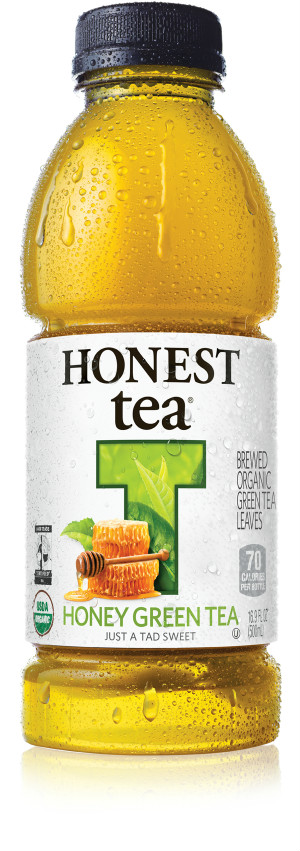Top Class Actions’s website and social media posts use affiliate links. If you make a purchase using such links, we may receive a commission, but it will not result in any additional charges to you. Please review our Affiliate Link Disclosure for more information.

U.S. District Judge Kimberly J. Mueller said that lead plaintiff Sarah A. Salazar’s claims surrounding Honest Tea’s misrepresentations about the antioxidant levels in its teas could not proceed as a class action lawsuit, because the state law in the matter is preempted by the Federal Food Drug and Cosmetic Act.
But on the matter of the tea company’s use of the word and concept of honesty in its marketing campaigns and branding, the judge found the matter very complex. As Salazar has alleged, Honest Tea uses the terms “Refreshingly Honest” and “Brutally Honest” in its labeling and advertising, as well as focusing interactive ad campaigns on the word “honest.” Honest Tea said in its defense that the claims were “just puffery” and that a reasonable consumer wouldn’t believe them.
Salazar says in the Honest Tea class action lawsuit that she purchased a number of bottles of Honest Tea’s Honey Green Tea in the period between 2012 and 2013. She claims that the Honey Green Tea bottles did not contain the amount of antioxidants represented on their labels.
According to the June 10 Order, “Specifically, plaintiff alleges that independent testing by a laboratory retained by plaintiff’s counsel determined the bottles contained an average of 186.7 mg of flavonoids per bottle, equivalent to 24 percent below the ‘247 mg Antioxidants Green Tea Flavonoids Per Bottle’ highlighted on the labels.”
Honest Tea, said Salazar, had therefore committed a number of violations on whose basis she brought the class action lawsuit, including breach of express warranty, breach of implied warranty of merchantability, violation of California’s Consumers Legal Remedies Act, violation of California Civil Code, violation of California’s Unfair Competition Law, violation of the state’s Business and Professions Code and False Advertising Law, negligent misrepresentation, and fraud.
However, among other problems with her Honest Tea class action lawsuit claim regarding antioxidant levels, said the judge, is that Salazar did not use the appropriate testing method to determine the actual levels in Honest Tea’s Honey Green Tea.
Judge Mueller wrote, “because defendant’s label statements are nutrient content claims, their accuracy must be challenged under the 12-sample test method… Yet, the Complaint does not allege plaintiff tested Honey Green Tea using this method. Consequently, the Complaint does not show that defendant’s statements on the product labels violate the FDCA’s labeling requirements. Because plaintiff’s allegations do not show a violation of the FDCA, plaintiff’s state law claims are preempted.”
As a result, wrote Judge Mueller, “[t]he court grants defendant’s motion to dismiss plaintiff’s state law claims to the extent they are based on the alleged misrepresentations about the antioxidant level of Honey Green Tea.”
When it came to the “puffery” of the term “honesty,” however, Mueller was not so eager to dismiss. She wrote, “a limited set of courts have emphasized the substance of the term ‘honesty,’ finding claims involving the term actionable and not puffery,” going on to evaluate the use of “brutally” and “refreshingly” in tandem with “honesty.”
“On the one hand, defendant’s use of ‘honest’ is similar to the non-actionable use of the terms ‘reliability’ and ‘authentic’ in the commercial product cases… The public is accustomed to hyperbolic text of this nature in advertisements… On the other hand, the ‘honest’ advertising may imply that defendant provides only truthful information regarding its products, and truthfulness can be measured. The terms ‘refreshingly’ and ‘brutally’ in this light may indicate complete, direct, and unfiltered honesty,” Mueller wrote.
In declining to dismiss the honesty claims, Mueller writes that “‘Honest Tea’ by itself, without any qualifiers, also has a concrete message to it. Plaintiff cites different advertising campaigns conducted by defendant, including a posting on its website, ‘Honest Tea: If it’s not real, it’s not Honest”; re-styling of the label to accentuate the word ‘Honest’; its billboard campaign of truths such as ‘YES, THAT DRESS DOES MAKE YOU LOOK FAT, BE REAL. GET HONEST’ and ‘IT’S NOT ME IT’S YOU, BE REAL. GET HONEST’; and its National Honesty Index social experiment. Based on the complaint, defendant sets out to paint itself as honest and bases virtually its entire product image on that characteristic. These claims are not mere puffery.”
Salazar is represented by L. Timothy Fisher, Sarah N. Westcot and Annick M. Persinger of Bursor & Fisher PA.
The Honest Tea Class Action Lawsuit is Sarah A. Salazar v. Honest Tea Inc., Case No. 2:13-cv-02318 in the U.S. District Court for the Eastern District of California.
ATTORNEY ADVERTISING
Top Class Actions is a Proud Member of the American Bar Association
LEGAL INFORMATION IS NOT LEGAL ADVICE
Top Class Actions Legal Statement
©2008 – 2024 Top Class Actions® LLC
Various Trademarks held by their respective owners
This website is not intended for viewing or usage by European Union citizens.















2 thoughts onHonest Tea’s Honesty Still in Question in Class Action Lawsuit
Add me
Add me